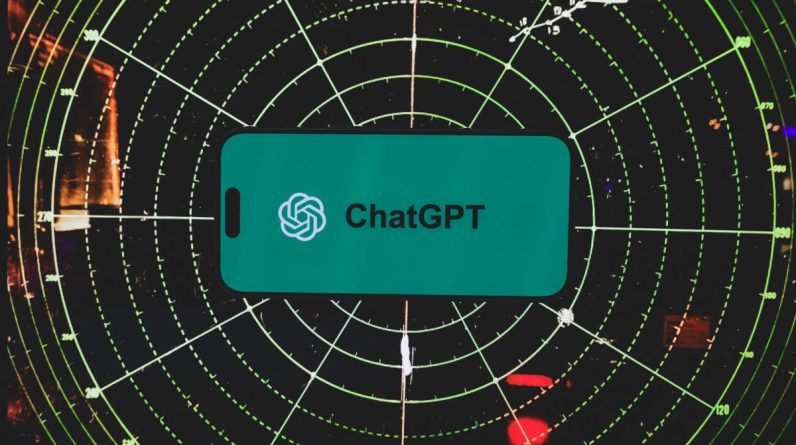Alexander Pershikov is a transportation evangelist, founder of GetTransfer.com, serial entrepreneur and visionary in dating apps.
When Suumit Shah, CEO of Indian e-commerce startup Dukaan, replaced 90% of his customer support team with an AI chatbot, he ignited a global debate. For some, it was a ruthless cost-cutting move. For others, it was a glimpse of the inevitable as AI models like OpenAI, Anthropic, Google and Mistral advance and reshape the landscape.
A growing body of research confirms the scale of change. Goldman Sachs economists estimate that generative AI could expose 300 million full-time jobs globally to automation. Further, an OpenAI and University of Pennsylvania study found “that approximately 80% of the U.S. workforce could have at least 10% of their work tasks affected by the introduction of GPTs.”
The most vulnerable roles share certain traits: repetitive cognitive work, high digitization and low need for physical presence or deep interpersonal connection. Here’s how the disruption is already playing out across industries.
Legal: From Paralegals To Attorneys
Generative AI excels at processing and summarizing legal text, making paralegals, legal assistants and junior associates prime targets. Tools like Allen & Overy’s “Harvey” AI are helping thousands of lawyers draft contracts and sift case law.
However, AI has its flaws. In one widely publicized U.S. case, a law firm was forced to apologize to a judge after ChatGPT fabricated legal citations. At present, human oversight remains critical.
I think the most probable near-term outcome is leaner legal teams, with human lawyers focusing on strategy and client relations while AI manages routine tasks. With GPT-5 and other more powerful models entering the scene, such high-profile missteps are expected to become less common.
Education: AI Tutors And EdTech
In 2025, Chegg announced that it would cut 22% of its workforce after students began turning to free AI tools like ChatGPT for homework help. Private tutors, test prep coaches and lesson content writers are also losing ground as AI becomes more adept at generating personalized quizzes, essays and language practice sessions on demand.
The World Economic Forum forecasts education will add jobs overall, but roles will likely shift toward mentoring and high-touch interaction. I believe that those in education who can integrate AI into personalized learning will be more likely to thrive; those who continue to deliver standardized content will be more exposed.
Customer Service: Chatbots In Call Centers
As evidenced by the example in my introduction, customer service is perhaps the clearest case of AI disruption. Startups and telecom giants alike are deploying bots for tier-1 queries (basic, routine questions), cutting large swathes of support staff.
After Dukaan’s employee cuts and pivot to AI agents, the company reported response times going from hours to under two minutes. In the U.K., BT Group plans to replace 10,000 jobs by 2030 with AI systems like its “Amiee” chatbot.
When it comes to my own company’s customer support, peak season used to mean overloaded inboxes, long waits and overworked agents. Seemingly overnight, AI tools could help us with routine questions in multiple languages, responding quickly and even pulling live account data.
As time passes, I foresee a decrease in entry-level support roles and an increase in demand for specialists who can handle escalated cases and oversee AI performance.
Media: Creative Writers And Reporters
Media companies have already tested AI content creation. Years ago, BuzzFeed pivoted to AI-generated quizzes while shuttering its news division. However, as with the examples from the legal field, the transition and use are not without flaws: CNET ran dozens of AI-written articles, which were later found to contain factual errors and plagiarism.
Microsoft’s own research ranks journalists, writers and authors among the most AI-exposed professions. Formulaic content—SEO blogs, sports recaps, product descriptions—and anything easily generated at scale, places pressure on human writers.
The hope: Human journalists focused on investigative and creative work is something I think AI can’t ever match. The risk, though, is that cost-cutting incentives will drive newsrooms toward “good enough” machine copy.
Influencer Culture: AI In Instagram And TikTok
Just three months ago, you could still tell when a photo was AI-generated; now you can’t. Videos produced by advanced tools like VEO3 are becoming virtually indistinguishable from reality, especially given the maximum resolution limits for Instagram Reels, which mask subtle artifacts.
The implication is profound: The era of smartphones as essential blogging tools is ending. You no longer need a camera, or even a real person, to create celebrity-level visuals. All you need is an idea, and AI platforms will do the rest.
Three years ago, with charisma and looks, you could grow an audience and attract attention. Today, that path is closing fast. AI is taking over the space, with teenage creators employed to help generate hyper-realistic “fashion influencers” who can outperform real people in both popularity and engagement.
The Transition Ahead: Three Phases
I see the AI disruption unfolding in three phases:
1. Augmentation: AI boosts individual productivity. Fewer hires are needed as each worker’s output increases.
2. Partial Automation: Significant portions of roles are handed to AI; humans focus on oversight, complex cases or creative strategy.
3. Full Transformation: In some domains, entire roles disappear or shrink to niche specialties.
Conclusion
As AI continues to innovate, professions built on routine knowledge tasks—from call center agents to paralegals to copywriters—face immediate risk, while others are being reshaped to work in tandem with AI.
Whether this shift becomes a story of mass displacement or a springboard to new opportunity will depend on how quickly individuals, companies and policymakers adapt. The technology genie is out of the bottle; the question is whether we use it to build a better future of work or let it rewrite the rules without us.
Forbes Business Council is the foremost growth and networking organization for business owners and leaders. Do I qualify?



